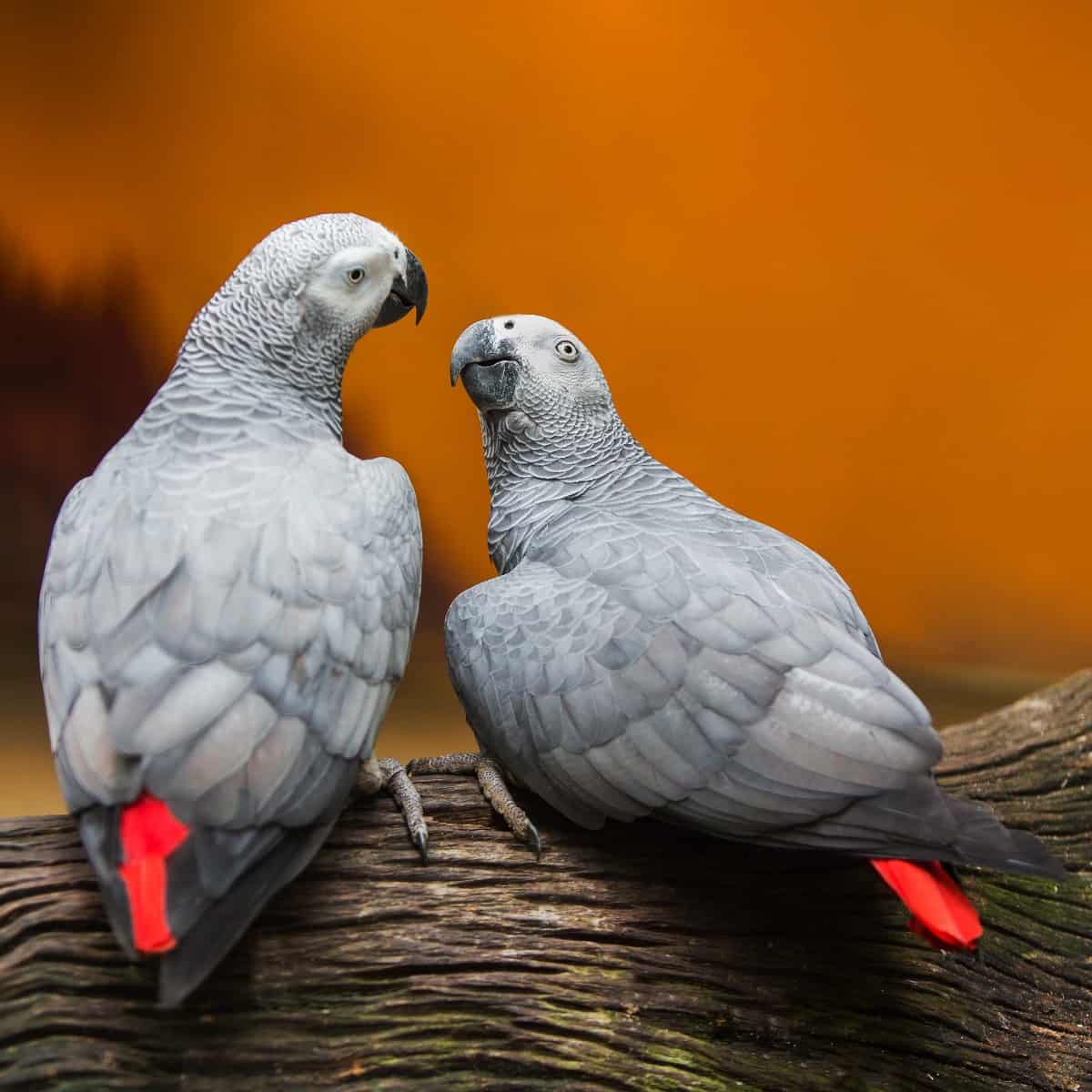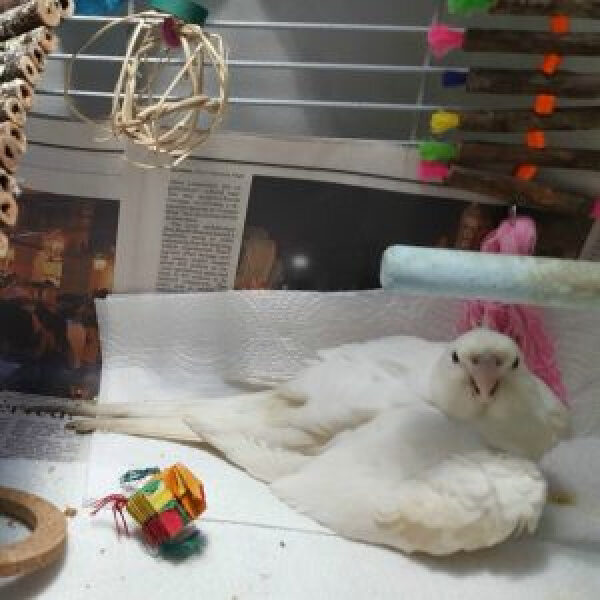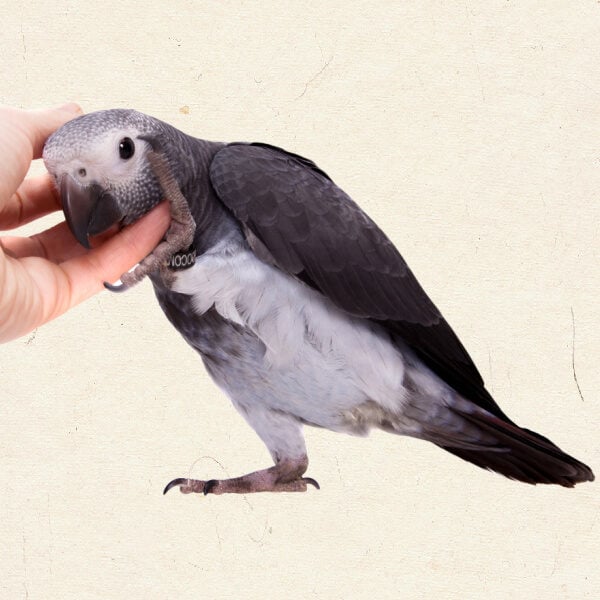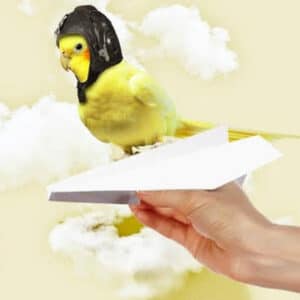Last Updated on by Mitch Rezman
I don’t think anyone will dispute the fact that birds are unpredictable.
I listen to the clipped wings camp and one of the things I hear repeatedly is “I keep my birds wings clipped so it doesn’t fly into a wall” Something pet bird keepers who clip their bird’s wings predict with absolute certainty.
Let me get this straight. You have an animal that can see things outside the range of human vision (light in the ultraviolet spectrum) but you don’t believe your bird can see an 8 or 10-foot tall plaster monolith with artwork hanging on it and have the flight agility to avoid said wall?
“My bird will hate that carrier, it’s too big and he’ll be scared”
How do you know this? Again a prediction with absolute certainty. You certainly won’t let your child select its car seat, but you’ll let your bird select its carrier (as the author scratches his head).
One more:
“My bird will never figure out that complicated interactive toy”.
Could it be because your bird spends eight hours a day in a cage looking at a wall with nothing to challenge its mind like an old person withering away in a nursing home?
So let me turn the tables – Can you tell me with accuracy the next time your bird will bite you? A lot of people here will say well “I watch for their eyes to pin”. Sunshine our Ringneck would get pinned eyes and squeal with delight as he received every serving of scrambled eggs. I never bought into that pinned eye “predicts” a bite theory. Pinned eyes predict excitement in both good and bad ways.
You tell me why your bird is acting “weird”. Could it be because of the new piece of furniture in the family room next to the birdcage?
I’m not trying to diminish anyone’s due diligence in caged bird-keeping husbandry, but how many of us have acquired our bird-keeping skills from bird forums and Facebook groups on the Internet? Do you think you are improving your bird’s chances to succeed over a long-term relationship or are you setting up the both of you for failure because all the books written about birds are so outdated which means you’re relying on nothing but anecdotal information?
I don’t say that lightly. Let’s face the facts, we all know birds can have remarkably long lives. I know a veterinarian who did an exam on a parakeet that was 26 years old – documented with the original Woolworth’s sales receipt from her 81-year-old human companion.
Bigger birds can live 30 – 40 – 50 years. Big Macaws and Cockatoos have been known to live into their 80s. We all know that (except for that parakeet story which was a remarkable discovery)
Sorry about not warning you, but I’m giving you some homework. Let’s all go back to our bird forums and Facebook groups and ask the question “How many here have birds that have been passed down for generations? How many people have grown up with birds that belonged to their parents or grandparents?
You will get a handful of people that have taken over bird stewardship, but for the most part, pet birds that are not being killed by their human companions are usually being rehomed repeatedly because the reality of caged bird keeping never comes close to the expectations of cage bird keeping.
The second part of the homework assignment (I know many of you have already done this) is to reevaluate your relationship with the animal. Are the problems that you’re having with your bird (screaming, biting, aggression, fussy eating) the lack of understanding of how complex a pet you’re really trying to maintain (“Oh, he always bites me when strangers come over and I don’t know how to fix that” – a topic for a future blog post).
Are you taking into account if your bird is clipped that he still needs to exercise to compensate for the lack of calorie burning his body biologically anticipates? Are you helping build a strong healthy mind for such an inquisitive animal?
So let’s give credit to these feathered creatures that can talk, think, solve problems, see light that is invisible to us and defy gravity, before we simply write off the creature with “my bird can or cannot do that.” Let’s think it through. We want the relationship with your birds to succeed as much as you do.
Written by Mitch Rezman
Approved by Catherine Tobsing
Author Profile
Latest entries
 Feeding Exotic BirdsDecember 29, 2025How to Switch or Convert Your Bird From Seeds to Pellets: Real-Life Case Studies and Practical Guidance
Feeding Exotic BirdsDecember 29, 2025How to Switch or Convert Your Bird From Seeds to Pellets: Real-Life Case Studies and Practical Guidance Feeding Exotic BirdsDecember 16, 2025A Practical, Budget-Smart Guide to Feeding Birds Well
Feeding Exotic BirdsDecember 16, 2025A Practical, Budget-Smart Guide to Feeding Birds Well Bird EnviornmentsDecember 7, 2025Understanding Budgie Cage Bar Orientation: Myths, Realities & Practical Solutions for Vertical-Bar Bird Cages
Bird EnviornmentsDecember 7, 2025Understanding Budgie Cage Bar Orientation: Myths, Realities & Practical Solutions for Vertical-Bar Bird Cages Feeding Exotic BirdsDecember 5, 2025How Dr. T.J. Lafeber Rewrote the Future of Pet Bird Nutrition
Feeding Exotic BirdsDecember 5, 2025How Dr. T.J. Lafeber Rewrote the Future of Pet Bird Nutrition



